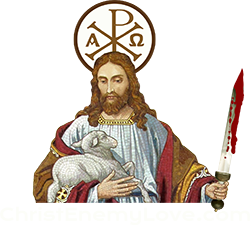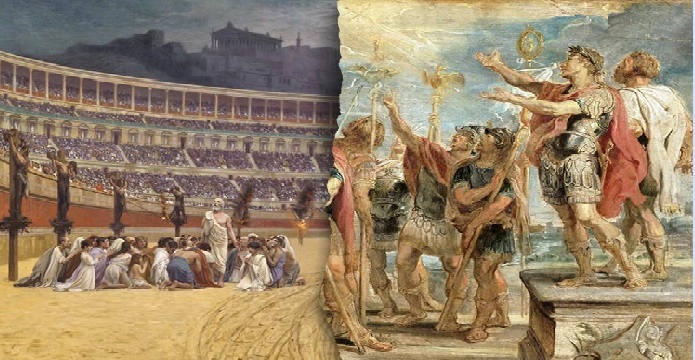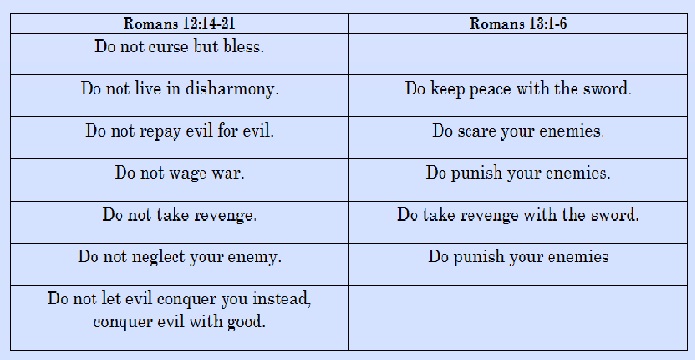From
THE MEANING OF THE DEATH OF JESUS: A VIOLENT MEANS TO A NONVIOLENT END PART 2
By JEFFREY FLETCHER
In going to the cross, Jesus lived out his teachings in the Sermon on the Mount: “love your enemies.” Jesus taught his disciples to turn the other cheek and to forgive. On the cross, Jesus lived out, to the ultimate degree, his teachings. He loved his enemies. He forgave his enemies. He did not retaliate against his enemies. In doing this, he proved that Satan’s ways are false. Jesus demonstrated that God’s kingdom is a kingdom founded upon love and forgiveness. The paradox of the cross is that, through an act of unspeakable violence, God is able to show us that His way is a way of non-violence.
Walter Wink observes:
Jesus’ nonviolent response mirrored the very nature of God, who reaches out to a rebellious humanity through the cross in the only way that would not abridge our freedom. Had God not manifested divine love toward us in an act of abject weakness, one which we experience as totally non-coercive and non-manipulative, the truth of our own being would have been forced on us rather than being something we freely choose. By this act of self-emptying, Jesus meets us, not at the apex of the pyramid of power, but at its base: “despised and rejected by others,” a common criminal, the off-scouring of all things. (Wink, Engaging the Powers, Augsburg Fortress, 1992.)




